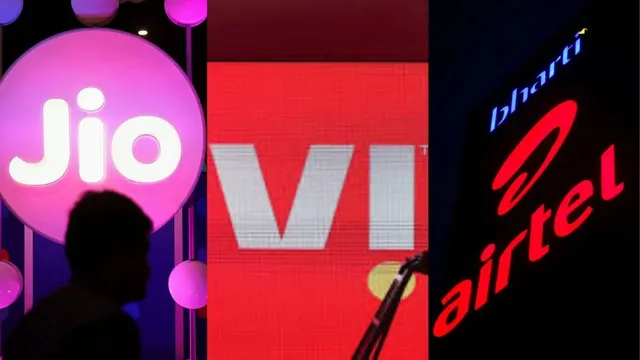- By Prateek Levi
- Wed, 20 Aug 2025 12:39 PM (IST)
- Source:JND
Jio, Aitel, Vi Mobile Recharge Plans: Indian mobile users are going to have to pay more for data, as Reliance Jio Infocomm Ltd and Bharti Airtel Ltd have withdrawn their low-cost prepaid recharge packs. The step, taken with the objective of increasing average revenue per user (ARPU), has left millions of users with no option but to upgrade to pricier plans.
Cheapest Plans Now Begin at ₹299
With budget packs aside, the new entry-level price for day data plans stands at ₹299 and more, with at least 1 GB per day. This represents a huge leap for price-conscious users who previously relied on cheap packs for affordability.
Here's a comparison of the existing entry-level prepaid plans among telecom operators:
Reliance Jio
₹299: 1.5 GB/day | Validity 28 days
₹349: 2 GB/day | Validity 28 days
Bharti Airtel
₹349: 1.5 GB/day | Validity 28 days
₹361: 50 GB/month | Validity 30 days
Vodafone Idea (Vi)
₹299: 1 GB/day | Validity 28 days
₹349: 1.5 GB/day | Validity 28 days
₹408: 2 GB/day | Validity 28 days
Though Jio and Airtel have dropped the budget plans, Vodafone Idea has decided to hold on to them, a step that may prove appealing to some price-sensitive consumers.
Jio vs Airtel – The Battle for Market Leadership
The elimination of starting plans is a move as part of the bigger war for market share. Based on TRAI figures in June 2025, Jio gained 1.9 million new customers, while Airtel picked up 763,482 during the same timeframe. Meanwhile, Vodafone Idea lost more than 217,000 subscribers, highlighting its consistent struggle.
Online Banter Between Rivals
As these shifts have been taking place, Jio and Airtel have also battled it out online, trading good-natured insults on social media to assert dominance. Jio pointed to its subscriber addition, while Airtel emphasised its high-quality network.
ALSO READ: Garena Free Fire MAX Redeem Codes For Today, 20 August 2025: Claim Free Diamonds, Skins & More
What This Means for Consumers
For the average mobile subscriber, this shift means increased monthly expenditure on calls and data. Even though telecommunication companies consider this an attempt to bolster revenue, the shift adds extra pressure on the pocket of the common man.

